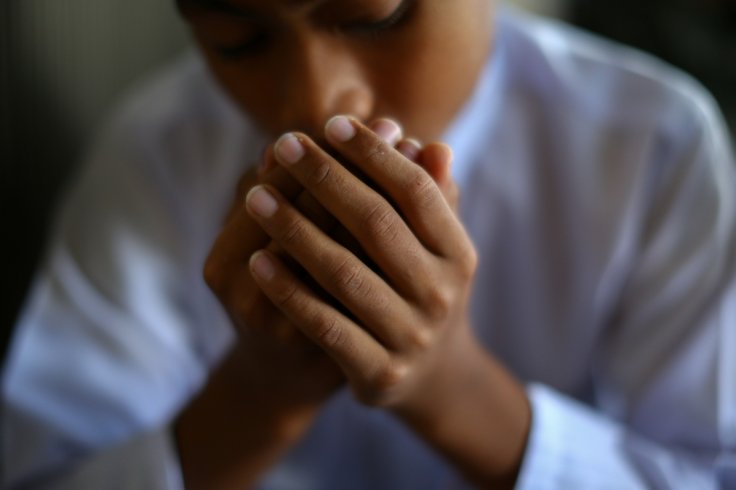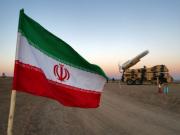
The UAE Fatwa Council on Sunday April 19 issued five fatwas or Islamic rulings on fasting during the Muslim holy month of Ramadan in the wake of the coronavirus pandemic. The council has ruled that Muslims who are showing symptoms of COVID-19 infection may choose not to fast during the month of Ramadan because fasting is only obligatory for healthy individuals.
The council or Majlis held a virtual meeting via teleconferencing to discuss the ongoing coronavirus situation and its implications on the blessed month of Ramadan which begins on April 24.
Coronavirus patients need not fast during Ramadan
In its first ruling, the council said that all healthy adults must fast during the holy month. However, it ruled that COVID-19 patients may opt not to do so if the virus symptoms appear or if they were told by doctors that fasting would make their condition worse.
"If a doctor asks a person not to fast as it might affect his immunity, then the person has the right not to fast during Ramadan," said the council in the virtual meeting chaired by Sheikh Abdullah bin Bayyah.
Medical workers, doctors have a choice
The council also ruled that it is permissible for frontline medical workers to choose not to fast while on duty if they fear that fasting could lead to weakening their immunity, and rendering them incapable of attending to their patients. "Workers in the health sectors also have the Islamic right to choose not to fast during their work days" ruled the council.
Permissions based on Quran and Islamic doctrines
The council said the permission for coronavirus patients to choose not to fast during Ramadan is based on verses from the holy Quran.
The council quoted verses from the holy Quran which say:
"Fasting for a limited number of days. So, whoever among you is ill or on a journey - then an equal number of days [are to be made up]-And upon those who are able [to fast, but with hardship] - a ransom [as substitute] of feeding a poor person [each day]. And whoever volunteers excess - it is better for him - But to fast is best for you, if you only knew," (Surah al Baqarah 2:184)
The council reassured that the fatwa was based on evidence from accredited Islamic doctrines which agree that "it is permissible for sick people not to fast, while it is not permissible for healthy people to break his fast".
Taraweeh prayers can be performed at home
The UAE Fatwa Council issued another edict, saying that given the current circumstances, Muslims can perform the daily special night Taraweeh prayers at their homes, and that they can be performed either individually or in a group with people in the same house. The Grand Mufti of Saudi Arabia also issued a similar statement on prayers during Ramadan.
The council declared that Muslims can read holding the holy Quran while praying since the Taraweeh prayers are performed reading the verses from the holy Quran.
Eid Al Fitr prayers
The third edict focused on the Eid Al Fitr prayers, on which the council said that the Eid prayer may also be performed at home, should the current situation continue until that time. It again ruled that people may perform the Eid prayers either individually at home or in groups with their family without a sermon, adding that large gatherings are prohibited.
Friday sermon and prayers
In the fourth edict, the council spoke about Jumu'ah or Friday prayers and said that they cannot be performed individually at home. Instead, people should perform the regular daily Dhuhr or afternoon prayers, since the Jumu'ah prayer is performed with a sermon. It has its own congregational requirements, and if these requirements are not met, the prayer is no longer valid.
The council warned against unusual practices and reminded that it is obligatory to follow the precautionary instructions issued by the authorities which require people to avoid gathering in the same place which increases the risk of transmission of the coronavirus.
Zakat and Zakat al Fitr during pandemic
The last edict was on zakat or Zakat Al Fitr, to which the council said it can be paid earlier in such circumstances to help needy people during these hard times.
Zakat Al Fitr is the annual payment in the form of charity for the needy under Islamic law applicable to every Muslim who owns a certain amount of property or wealth or gold and is one of the five pillars of Islam.
It also pointed out that all types of zakat are better spent within the country to help the beneficiaries meet their demands. Zakat can be paid personally to the needy or to authorities concerned or charitable organizations that collect zakat funds and deliver them to the beneficiaries.
Council's appeal
Towards the end of the meeting, the council urged everyone to adhere to the health instructions and precautionary measures in place to curb the spread of the COVID-19 pandemic.
It appealed that the exceptional circumstances that we are going through require us to emphasize and promote values of human compassion and strengthen relations based on the principles of solidarity, cooperation, and unity.
The council called upon all to thank the almighty for his countless blessings and take good advantage of the holy month of Ramadan to worship and pray for the coronavirus pandemic to end and also to help those in need.
"We take this precious occasion to call on the whole world and every human being to lend a helping hand to the poor and needy people, help relieve the suffering and pain of the underprivileged and vulnerable people, regardless of their religious or ethnic backgrounds," the council said.
Abide by the precautionary instructions
The council lauded the UAE government's initiatives and measures to curb the contagion and reaffirmed that people should stick to the precautionary lockdown measures in place. It said said every Muslim should abide by the closure of mosques until further notice, issued by the National Emergency, Crisis and Disaster Management Authority in coordination with the General Authority for Islamic Affairs and Awqaf, as well as federal and local religious and health authorities in the country.
It took the opportunity to thank and appreciate all healthcare professionals and medical teams who are on the frontline of the battle against coronavirus, as well as the UAE soldiers and police who are working round the clock to ensure the safety of citizens and residents.









